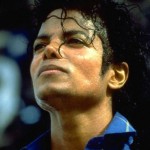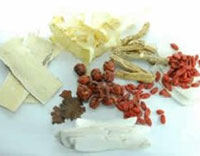Are American doctors overdosing their patients on prescription mood enhancers, (Prozac) and sleeping pills (Ambien), pain pills, (Vicodin) or is it just the super stars like Michael Jackson? Living in Los Angeles, one becomes accustom to the constant buzz of movie stars and the rich and famous going off to drug rehab centers, but with the sudden death of Michael Jackson everyone’s talking about the same subject like never before.
The drugs MJ was taking and the probable overdose. We’ve seen and heard about it before (Anna Nicole Smith) yet this time the amount of drugs prescribed and the amount needed for so many years seems un-imaginable. Everyday people die from prescription overdose but it’s not news because it’s not a celebrity.
Truth is, for the general public, doctors freely provide prescription medication to anyone who simply shows up at the doctors door with a nominal complaint, “I can’t sleep”, “I’m depressed”, “I just need something to relax me”. The medical establishment willingly prescribes medications with minimal face to face patient interaction. To make matters worse, the doctors don’t have time to ask you if your taking med’s from another doctor. The real danger is both the interactions among cocktails of prescriptions and the amount taken as resistance to drugs grows higher as the body becomes increasing tolerant to each drug.
Now this is just the tip of the proverbial iceberg. Antibiotics keep getting stronger as viruses become resistant. Uncertainties remain in the risks of prescribing antibiotics freely for conditions such as childhood ear infections which have been proven have no benefit for bacterial infections, Now some say our drinking water and irrigation water is polluted with antibiotics that are not filtered out in water sanitation plants. How do we avoid this tainted water. The long term hazards of antibiotic resistant viruses, could have widespread irreversible impacts on our world, a subject, clearly for another blog.
Today the ease of getting prescription medication is just simply to easy. Every home seems to have a fairly well stocked medicine cabinet of prescriptions. We even see TV commercials warning us to keep prescriptions away from our teens, who are looking to take them or sell them at school.
I am sad that MJ had to die and I believe his death could have been prevented. There are safer alternatives for depression, pain and insomnia. In China and most of Asia, herbal medicines have been the standard. People do not become addicted and over dosing is virtually unheard of. Yet, herbs are effective and provide relief for many of the same conditions for which people choose prescriptions in the West. We simply have not been introduced to these alternatives. I hope with the lose of Michael Jackson the AMA or FDA cracks down on Doctors who abuse prescription writing privileges. I hope MJ’s death opens people eyes to the very real dangers not just of addiction to prescriptions but also dangers of death by drugs.



